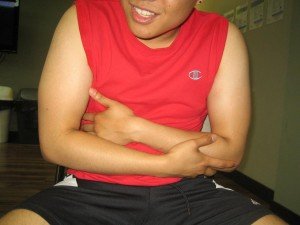Escherichia coli O157:H7 is considered as the leading cause of most foodborne illnesses. Majority of cases involving E. coli have been linked with consuming undercooked, contaminated ground beef. Thousands of cases have led to a number of deaths in various countries around the globe.
An infection due to Escherichia coli O157:H7 often leads to blood-streaked diarrhea and even kidney failure in some cases. Aside from meat, E. coli infection can also occur from close person-to-person contact, swimming in or drinking water contaminated with sewage as well as drinking raw milk. There are also cases in which Escherichia coli O157:H7 infection was caused by eating spinach, sprouts, salami and lettuce.
How to avoid Escherichia coli O157:H7
Most cases of E. coli infection can be prevented by thoroughly cooking ground beef, washing hands carefully and avoiding unpasteurized milk. Other precautions to bear in mind include the following:

- Carefully clean the areas where meat is prepared. Always wash hands thoroughly as well as the utensils and counters using hot soapy water after in contact with raw meat.
- When storing raw meat, it should be separated from other ingredients in the kitchen especially ready-to-eat foods.
- Do not place cooked hamburgers or ground beef on unwashed plates that was used for the raw patties.
- If possible, drink only pasteurized milk, cider or juice. Take note that commercial juice with an extended shelf-life being sold at room temperature has been pasteurized but this is not generally indicated on the label.
- Meat thermometers should be washed in between tests of patties that require further cooking.
- Vegetables and fruits should be washed thoroughly particularly those that will not be cooked.
- Children below 5 years old, elderly and immunocompromised individuals must avoid consuming alfalfa sprouts until safety can be guaranteed.
- When swimming in a pool or lake, do not swallow the water.
- Only use municipal water that has been treated using chlorine or other highly effective disinfectants.
- Those who have diarrheal conditions should avoid swimming in lakes or public pools, preparing food for others or sharing baths with others.
- Always make sure that individuals who have diarrhea especially children should wash hands thoroughly with soap after bowel movements in order to reduce the risk of spreading the infection. In addition, those who change soiled diapers should also wash hands thoroughly.
How to recognize an Escherichia coli O157:H7 infection
This infection often triggers severe blood-streaked diarrhea along with abdominal cramping. Oftentimes, this infection can cause non-bloody diarrhea or no symptoms at all. In most cases, minimal or no fever is present and the illness resolves within 5-10 days.
In some circumstances, especially children below 5 years old and the elderly, this infection can eventually lead to hemolytic uremic syndrome (HUS) or Hamburger Disease where the red blood cells are destroyed and the kidneys fail. Approximately 2-7% of infections progress to this complication. It is important to note that hemolytic uremic syndrome is the main cause of acute kidney failure in children and most cases are caused by Escherichia coli.
Treatment for Escherichia coli O157:H7
It is sad to note that the treatment for E. coli infection is mostly supportive. Individuals who have the infection that develop diarrhea might end up with dehydration. The use of antibiotics does not show any improvement in the course of the infection. In addition, antibiotics might also increase the likelihood of kidney disease.
